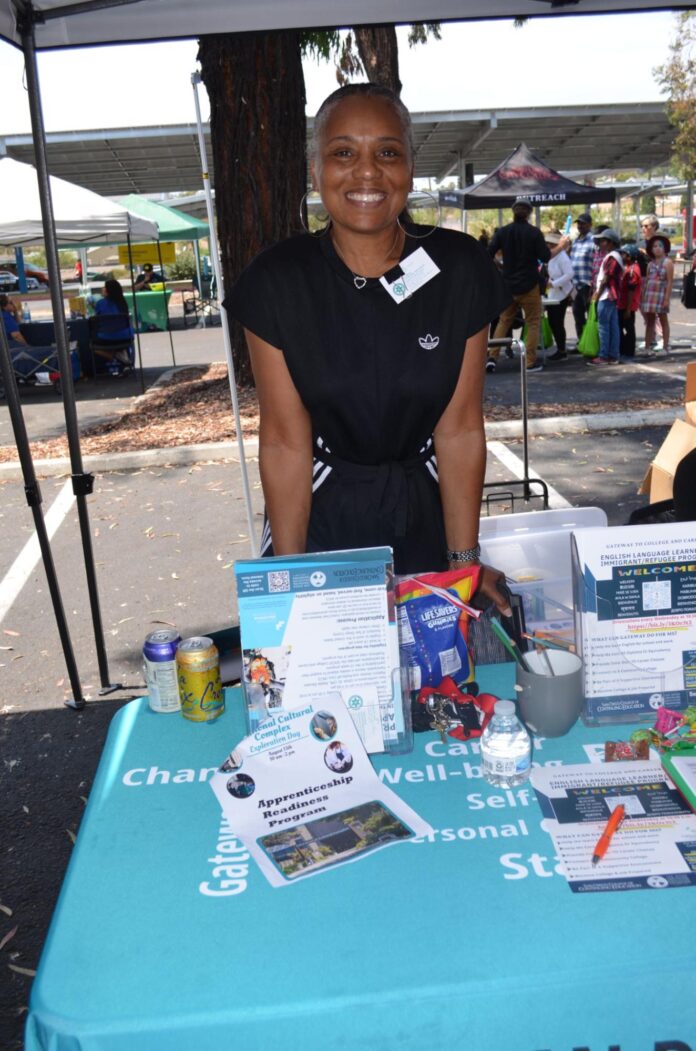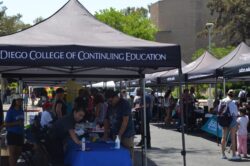
By TJ Dunnivant, Contributing Writer

For a while it was thought that pushing students to a trade school was a disservice to them, opting them out of a chance to obtain a degree. Today, with a drop in completion rates due to one’s inability to put years of education first over day to day survival, educators have revisited job readiness and skills training as an additional way for a student to obtain a successful career.
Returning back to 100% classroom time after the worst of the pandemic, San Diego College of Continuing Education (SDCCE) hosted an open house Saturday, August 13 to increase registration and inform prospective students of the pathway option to gain faster employment success through skilled training.

According to the press release sent out prior to the event, SDCCE provides free workforce training for adult learners at seven campuses across the county in priority sectors such as welding, automotive, child development, information technology, culinary arts, business, healthcare, digital media, clothing and textiles.
The difference between SDCCE and San Diego Community College is that SDCCE classes are free, but you don’t obtain credits. “We aren’t just free,” proclaimed Zuri Williams, an administrator attending a booth, “We are priceless!”
Zuri’s energy gives prospective students ease as they try to navigate into a world of unknown steps to access better opportunities to obtain stable employment or a better career. Dean of Automotive, Andrei is also exuberant when speaking about the programs SDCCE has to offer. Adorning his Pasifika Entertainment shirt, Andrei beams with pride for the group on stage and the success of the event unfolding before his eyes.

“I want to have more events like this with great entertainment,” Andrei said. “The goal is to continue to bring high-quality talent in to take advantage of these free educational opportunities.”
Now that programs such as these become available and celebrated, completion rates in continuing education and community colleges are increasing. Although certificated programs were once looked at as a form of tracking certain students into trades vs degrees, new data is showing that shorter pathways to completion works better for individuals that have to be the provider for their family needs.

